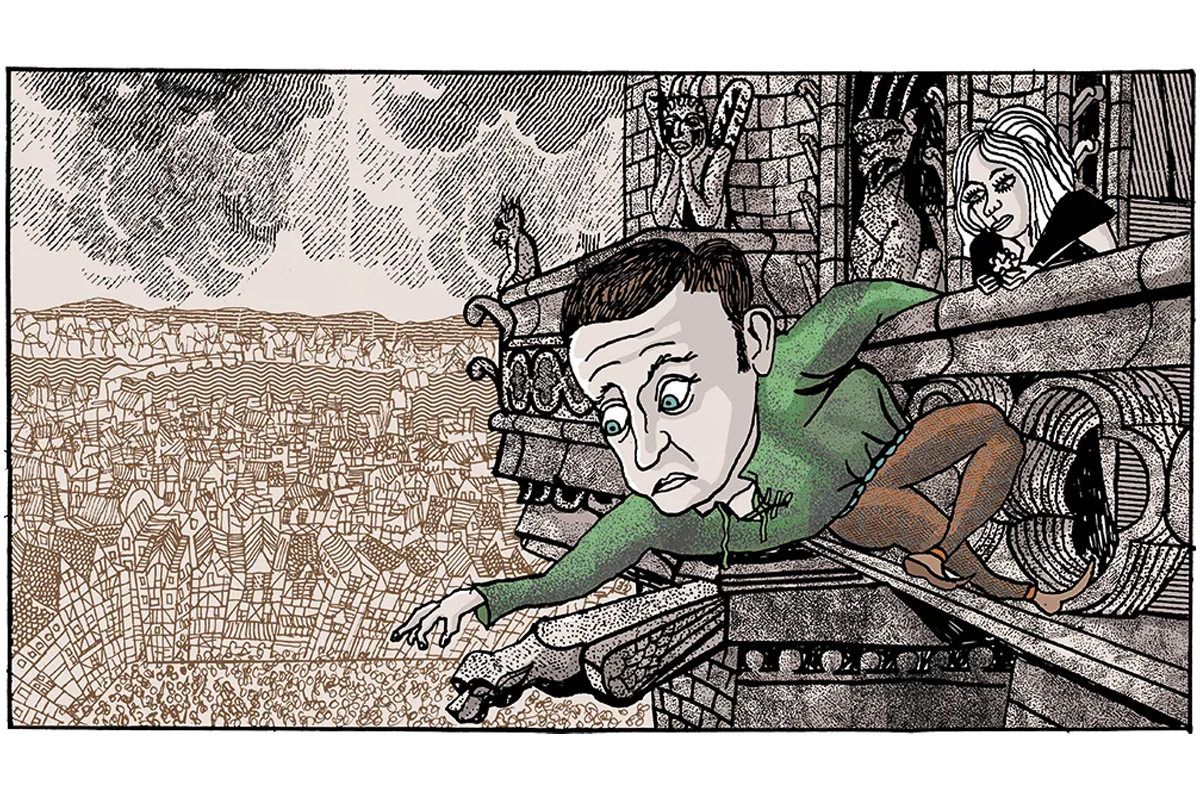It was a law of classical political philosophy that democratic polities devolve inevitably into tyrannical ones. This law is being validated in the twenty-first century, as liberal democracy creates societies antithetical to both liberalism and democracy by shaping citizens of a character for which neither was designed nor developed. In a parallel development over the past decade or so in Europe and the United States, liberals and democrats view their response to the problem as “reaction,” pure and simple, against the sort of thing they have been fighting since 1789. Only it is not reaction; it is apparently something new in history. It is a rebellion (liberals and radicals “revolt”) less against what is than against the future, the transition to the tyrannies predicted in antiquity.
This rebellion smoldered for decades before catching flame: first with Brexit in 2016, next with the election of Donald Trump, then when Swedish populist conservative Jimmie Åkesson polled alarmingly well in 2018. This June’s European Parliament elections seem to show a new European right coalescing across the continent, shocking the political establishments in France, Italy and Germany, where the Rassemblement National and Fratelli d’Italia — historically reprehended as fascistic and racist — won majorities and the Alternative für Deutschland came second. The shock is being felt as well across the Atlantic, where liberals dreading the return of Donald Trump to the White House fear that, just as Brexit may have contributed to his victory eight years ago, the European results may help him win again. But Trump is one man, MAGA is a wing of a single national political party and the United States remains — mass jet travel brings it no closer — thousands of miles from Europe.
Early in the twenty-first century the controversial historian and journalist Samuel T. Francis published an essay in Chronicles magazine in which he added the concept of what he called “anarcho-tyranny” to the study of contemporary politics. By this term Francis meant to describe the liberal-Democratic-corporate project in the United States which aimed to ally government at every level with the lower classes (including their criminal component), setting racial and ethnic minorities and Third World immigrants against the middle and lower-middle strata of American society for the purpose of extending and consolidating governmental power at the latter’s expense and transforming a free and democratic country into a left-wing, authoritarian monolith grounded in corporatist, multicultural and globalist principles. No doubt only a few Americans have ever heard of Sam Francis, but a good half of them eventually seem to have figured out for themselves, however dimly, just what had been going on before Donald Trump descended the golden escalator at 725 Fifth Avenue. Since 2016, as mainstream European politicians have progressively liberalized themselves on the American model, a substantial — and now a critical — mass of their voters has “woken” in its own way in response to the immigrant invasion, unimpeded by the elites, from Africa, the Middle East and Central Asia, the fanaticism of the Green parties and the “net-zero” agenda adopted by cynical and irresponsible governments that in fact know better.
The faults and weaknesses of civilizations, like those of individuals, become more pronounced as they age. Western democratic governments, designed to represent their citizens and govern on their behalf and in the popular interest, have grown so powerful and power-hungry, so wealthy, so bureaucratized and so self-obsessed they are unable to resist the temptation to serve the state (themselves) in place of the nation (the people), as the FBI, the CIA and the Justice Department amply demonstrate today. Tocqueville may have been overly admiring of the degree to which nineteenth-century Americans were absorbed in politics and self-government generally; it did not occur to him that when “the people” begin thinking about government, sooner or later too many of them — usually the wrong ones — will think of nothing, or almost nothing, else. Yet in the present era of ideological, over-centralized, overreaching and omnipresent government, an obsession with politics is a healthy and essential thing, in particular among those citizens who still take to heart Jefferson’s maxim that eternal vigilance is the price of liberty, whether or not they could cite his words or even identify the author of them.
This article was originally published in The Spectator’s August 2024 World edition.


























Leave a Reply